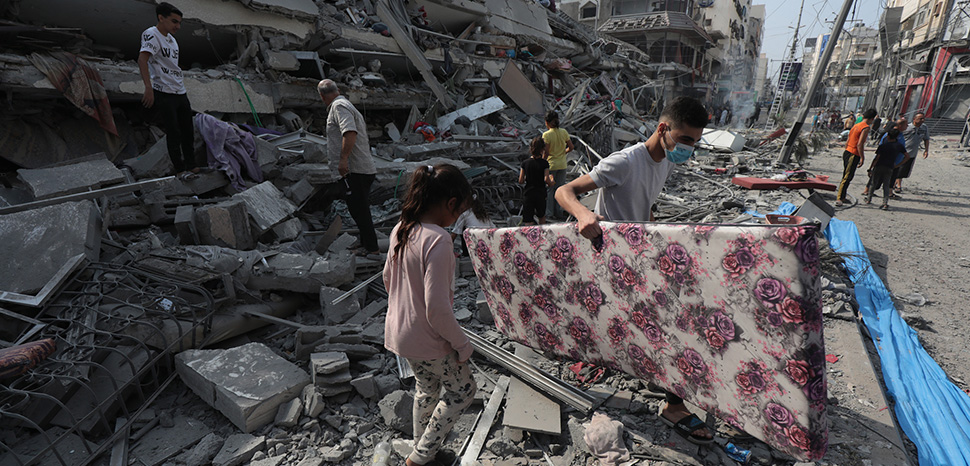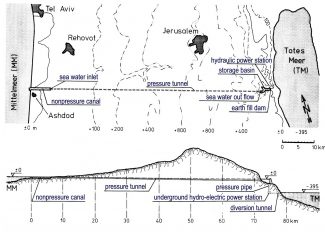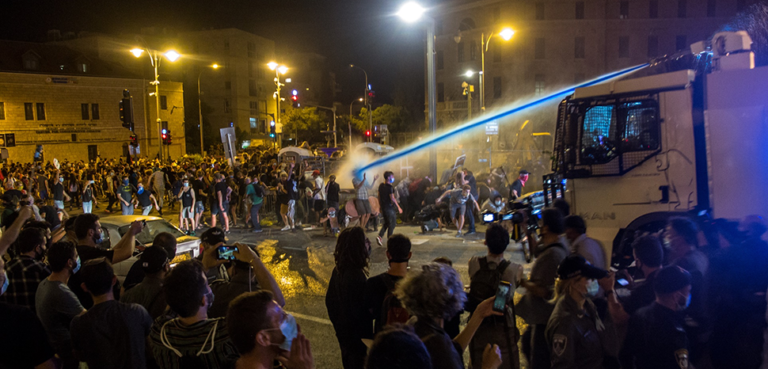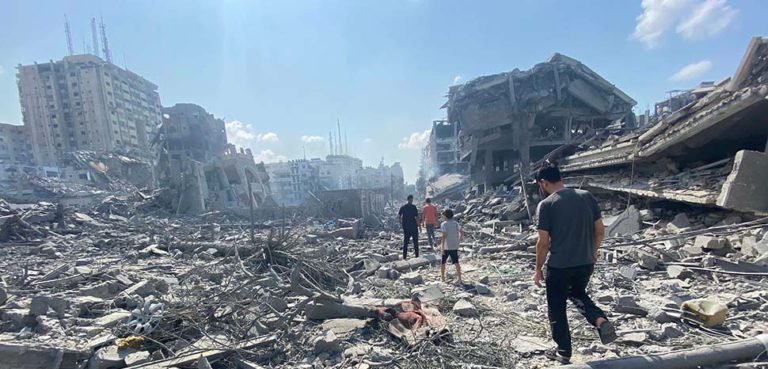There has been much talk about what happens after Hamas is eliminated as a military and political force in Gaza. Some speak of the urgency of a two-state solution. Others scoff at the very idea. The hatreds unleashed by the fighting, they argue, would make it impossible to reach such a settlement. Yet, we suggest, once Hamas is neutralized, Gaza could play a key role in finally resolving the Israeli-Palestinian conflict.
Right now, there is no mood in Israel nor the Palestinian Territories for any talk about what happens next. Both the Israelis and the Palestinians have been traumatized by events. In Israel, some brave souls continue to advance a two-state solution. But the Hamas outrages of October 7 have turned many doves into hawks. Israel’s rightward drift prior to the bloodletting has accelerated. The Palestinians’ view of Israel as a cruel and heartless occupier will now only be more pronounced. A recent poll indicates a majority of them see the conflict as targeting all Palestinians, only a minority view it as a war between Israel and Hamas.
So, the two sides have never been more at odds. Any pursuit of a post-Hamas resolution to this unending human tragedy would be something of a fool’s errand. However, that does not mean that a start can’t be made to develop the contours of a future Palestinian state in Gaza and the West Bank. The process would have to begin in Gaza because the West Bank remains contested and hugely volatile, with Jewish extremists abusing Palestinians and Hamas and Islamic Jihad cells wreaking mayhem in the territory and, occasionally, in Israel proper.
Once Hamas is out of the way in Gaza, there is a real chance of building what could be a model for Palestinian statehood. Initially, the strip would be governed by an international- or Arab-administered protectorate. Israel certainly has no desire to stay there. When it exited in the early 2000s, many Israelis breathed a heavy sigh of relief. The only real concern was that withdrawal would embolden militants in the West Bank. Now, Israel is likely to insist on Gaza being demilitarized and the maintenance of a heavy security presence on its borders, initially at least. But critically, these borders are not contested, which removes a big headache when discussing Palestinian self-determination.
Just as the international community took charge of civilian affairs and security in Kosovo after the last of the Balkan wars, a similar type of UN-sanctioned guardianship might be set up in Gaza. The territory could be run and policed by a coalition of Western states or, arguably more preferable, a grouping of Arab countries, perhaps made up of Israel’s new Gulf allies and Egypt. Some Israelis have spoken of the possibility of the Palestinian political party Fatah taking over. But that would be premature, as the Fatah-led Palestinian Authority in the West Bank is seen by many Palestinians as corrupt and an enabler of the Israeli occupation.
Under a protectorate, it would be possible to transform Gaza into an economically viable entity. Israelis often contend that after they left in 2005, Gazans had an opportunity to turn their enclave into the ‘Singapore of the Middle East’ but chose instead to fashion a terrorist state. It’s true they voted Hamas into power a year later, but few had any idea that it would become a violent regime that would crush dissent and use the strip as a rocket-launching pad. With a responsible authority in charge, international assistance and investment could be channeled into the construction of infrastructure, housing, educational facilities, and job-creation, without fear of funds being misused or squandered.
Gazans have endured no end of calamities in recent years. A protectorate would give them an opportunity to breathe and return to some semblance of normality. They would understand that those governing them were doing so temporarily. And they would probably be relieved that extremists in their ranks would not be able to jeopardize their lives, as Hamas did on countless occasions.
As the protectorate makes progress, Israel will be more inclined to allow more Gazans to work in Israel – nearly 20,000 were already doing so on the eve of the war – and relax its restrictions on goods allowed to enter the territory. Egypt would probably do the same. Both Egypt and Israel may also in time permit the development of a port, and even an airport, in Gaza. Israel had considered both a decade ago, albeit on an artificial island off the Gazan coast. It’s all a question of confidence-building. If Gaza’s big neighbors trust that the protectorate’s authorities are doing the right thing and the territory does not pose a threat, then, frankly, it’s in the Israelis’ and Egyptians’ national interest to ensure the entity functions.
At some point, possibly after 15 years, a gradual transfer of power would take place, with the protectorate ceding authority to Fatah, though this would be conditional on the latter demonstrating that it would rule responsibly and democratically. Fatah would be under huge international scrutiny, but the hope is that a successful Fatah-governed Gaza, open to electoral challenge from genuinely democratic rival political parties, would then serve as a model for the West Bank. Perhaps more so if a new progressive Palestinian party were to defeat Fatah in elections.
There are, of course, many unresolved issues and tensions in the West Bank that would militate against such a transition. You might argue that even if Palestinians there wanted to replicate Gaza’s economic and political revival, they would be stymied if Israel’s occupation remained in place and Israeli settlers continued to pose a threat. But with the passage of time, Israel may be more inclined to compromise over the West Bank, countenancing major territorial concessions. Especially, if they see that Gaza has stabilized and prospered.
Don’t forget, at the ill-fated Camp David summit in 2000, Israeli negotiators reportedly offered the Palestinians over 90 per cent of the West Bank together with some land swaps, part of Jerusalem, and all of Gaza. The talks collapsed, some believe, over the Palestinian insistence on the ‘right of return’, which Israel fears would ultimately lead to its demise. This, rather than territory, is really the principal obstacle to a peace settlement. But if Gazans over the coming years enjoy the fruits of economic independence and political plurality, and West Bank Palestinians decide they want a share of it, then the Gazan model could work.
Saul Zadka is a former Europe correspondent for the Israeli newspaper Haaretz. Yigal Chazan is the former managing editor of the Institute for War and Peace Reporting.
The views expressed in this article belong to the authors alone and do not necessarily reflect those of Geopoliticalmonitor.com.




